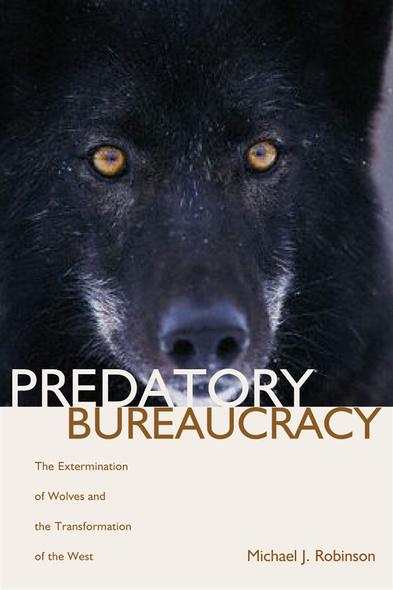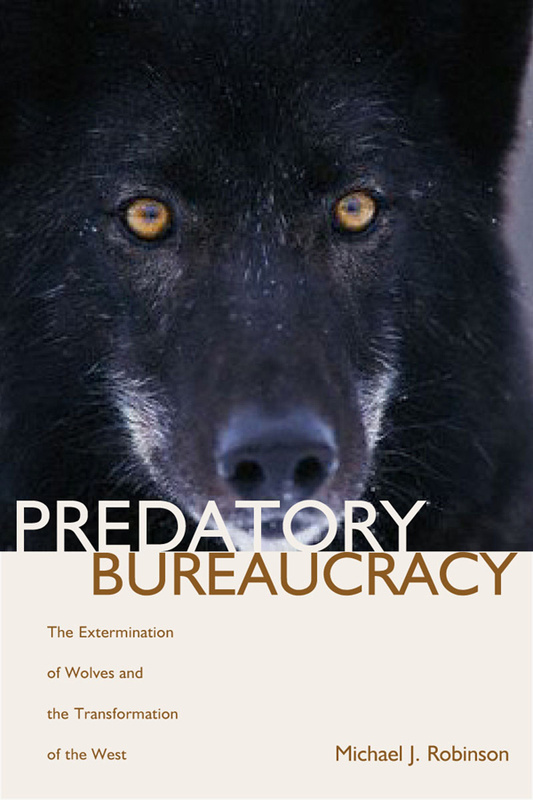Predatory Bureaucracy
The Extermination of Wolves and the Transformation of the West
Robinson follows wolves' successful adaptation to the arrival of explorers, mountain men, and bounty hunters, through their disastrous century-long entanglement with the federal government. He shares the parallel story of the Biological Survey's rise, detailing the personal, social, geographic, and political forces that allowed it to thrive despite opposition from hunters, animal lovers, scientists, environmentalists, and presidents.
Federal predator control nearly eliminated wolves throughout the United States and Mexico and radically changed American lands and wildlife populations. It undercut the livelihoods of countless homestead families in order to benefit an emerging western elite of livestock owners. The extermination of predators led to problems associated with prey overpopulation, but, as Robinson reveals, extermination and control programs still continue. Predatory Bureaucracy will fascinate readers interested in wildlife, ecosystems, agriculture, and environmental politics.
Predatory Bureaucracy is, first and foremost, a work of tremendous scholarship. . . . Surprisingly, it is also a beautifully written book that captures the feel of western landscapes and the ethos of early 20th-century America with an eloquence unusual for a weighty, scholarly book.'
—International Wolf Magazine
In Predatory Bureaucracy Michael Robinson paints a vivid picture of the lives of some of the last wolves to roam in the West and of the men who planned and carried out their killings, and tells the remarkable story of passage of the Endangered Species Act and subsequent wolf reintroductions in the face of continuing fierce opposition. Through exhaustive review of thousands of personal letters, policy documents and other obscure records, Robinson chronicles the birth, growth, and cultural maturation of an agency whose primary mission is the extermination of 'bad' animals at the behest of the agricultural industry - a case study of the dark side of biopolitics. He documents the Machiavellian tactics used by powerful individuals to federalize the 'service' of killing predators and other 'harmful' animals. Robinson tells this important story in a compulsively readable manner. Predatory Bureaucracy should be read by all who care about wildlife conservation, especially government biologists.'
—David R. Parsons, Wildlife Biologist and former Mexican Wolf Recovery Coordinator for the U.S. Fish and Wildlife Service
The book brings together a formative history of the dewilding of the western United States, with a focus on the history of predator control of wolves, and an in-depth history of wildlife politics and those that drove the structuring of wildlife laws we currently use. . . . The book inspires the reader to look at the land as a scientist, not a researcher of a particular species, not as a mammalogist, or an ornithologist, or a botanist, but as someone committed to the land ethic first taught by Aldo Leopold, and committed to the future of the landscape, with wolves, coyotes, pronghorn, and the myriad species that make the land what it was, and is, and should be in the future.'
—Journal of Mammalogy






